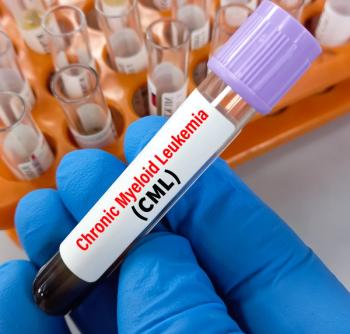
Personalized cancer vaccines target tumor heterogeneity, enhancing immune responses and improving treatment outcomes in diverse cancer types.

Personalized cancer vaccines target tumor heterogeneity, enhancing immune responses and improving treatment outcomes in diverse cancer types.

Emerging biomarkers and targeted therapies are reshaping the landscape of lung cancer treatment and drug development.

Nicoletta Colombo, MD, PhD, discusses why metronomic chemotherapy dosing and careful regimen design may have driven the success of the KEYNOTE-B96 trial.

Datopotamab deruxtecan-dlnk improved duration of response by roughly 5 months compared with chemotherapy in first-line mTNBC.

At ESMO 2025, Felix Guerrero-Ramos, MD, discussed SunRISe-1 data showing durable responses and low toxicity with TAR-200, the importance of training in device management, and how future biomarker research may refine patient selection and combination strategies.

Andrea Necchi, MD, shared SunRISe-4 primary results demonstrating higher pathologic response and relapse-free survival rates with TAR-200 plus sacituzumab compared with checkpoint inhibitor monotherapy, with no new safety signals observed.

Stephen Freedland, MD, highlighted data showing significant overall survival benefits in the EMBARK trial and discussed the continued role of monotherapy in preserving quality of life for select patients.

Thor Halfdanarson, MD, discussed early results showing favorable response rates and manageable safety with ^212Pb-VMT-α-NET, along with the role of PET imaging in optimizing patient selection for future trials.

Advances in targeted therapies, combination approaches, and novel treatment strategies are shaping the management of drug-resistant lung cancer.

Insights from ESMO 2025 highlight advancements in non-small cell lung cancer treatment, focusing on novel therapies and molecular diagnostics.

Felix Guerrero-Ramos, MD, outlines molecular and pharmacologic findings from SunRISe-1, including the high prevalence of TP53 alterations and the extended drug exposure achieved with the TAR-200 intravesical delivery system.

Oncologist Thor Halfdanarson reviews dose-finding data for the targeted α radioligand therapy [^212Pb]VMT- α-NET, highlighting manageable toxicity, stable renal function, and plans for phase 2 evaluation.

New data from the NATALEE trial reveals ribociclib significantly improves invasive disease-free survival in HR+/HER2– early breast cancer.

Adjuvant abemaciclib plus endocrine therapy significantly enhances overall survival in high-risk HR-positive HER2-negative breast cancer.

Durvalumab combined with FLOT shows significant survival benefits for patients with resectable gastroesophageal junction cancer, regardless of PD-L1 status.

Students can better balance parenthood, academics, and self-care with planning, resilience, and strong support systems.

Novel mechanism offers hope for improved tolerability and efficacy in patients facing resistance or long-term toxicity with existing TKIs.

Pranav Garimella, MBBS, MPH, emphasizes that pharmacists are essential partners in managing chronic kidney disease, ensuring safe medication use, adherence, and coordinated care alongside physicians.

An index of total cholesterol, high-density lipoprotein (HDL), and fasting glucose levels was found to indicate the prevalence of type 2 diabetes in a nationally representative US cohort.

The expanded indications now include adolescents with hidradenitis suppurativa aged 12 and older and pediatrics with uveitis aged 2 and older.

Revised recommendations include new thresholds for initiating antihypertensive therapy using the PREVENT equation.

Nivolumab plus chemotherapy and ipilimumab show significant long-term survival benefits for advanced esophageal squamous cell carcinoma.

Glofitamab-GemOx improves survival in transplant-ineligible patients with R/R DLBCL.

The mean time intervals between injection and complete retinal vascularization were similar between the biosimilar and its reference product.


Three targeted inhibitors offer new strategies for HR-positive, HER2-negative breast cancer with PIK3CA mutations.

Individuals without a previous heart attack or stroke demonstrated significant cardiovascular risk reduction when treated with evolocumab.

Pharmacists are uniquely positioned to help prevent nutritional deficiencies, manage adverse effects, and maintain long-term health through tailored guidance.

Whether they are collaborating with other health care professionals, helping with medication adherence, or educating patients, pharmacists have a crucial role in every setting.

Charitable pharmacies provide essential medications to and address the health care needs of underserved populations.